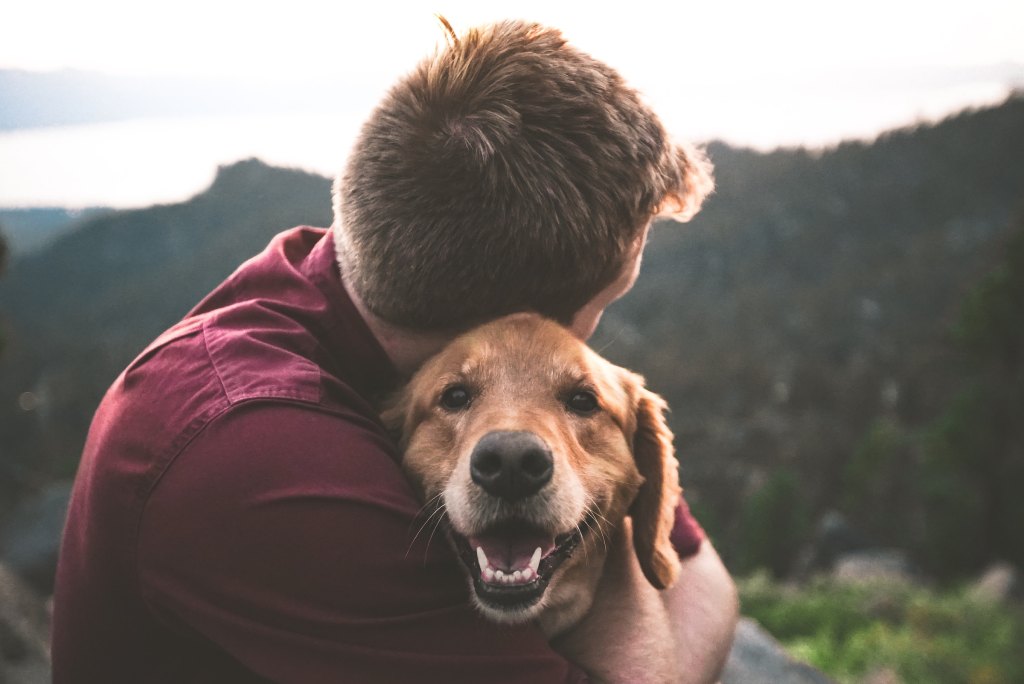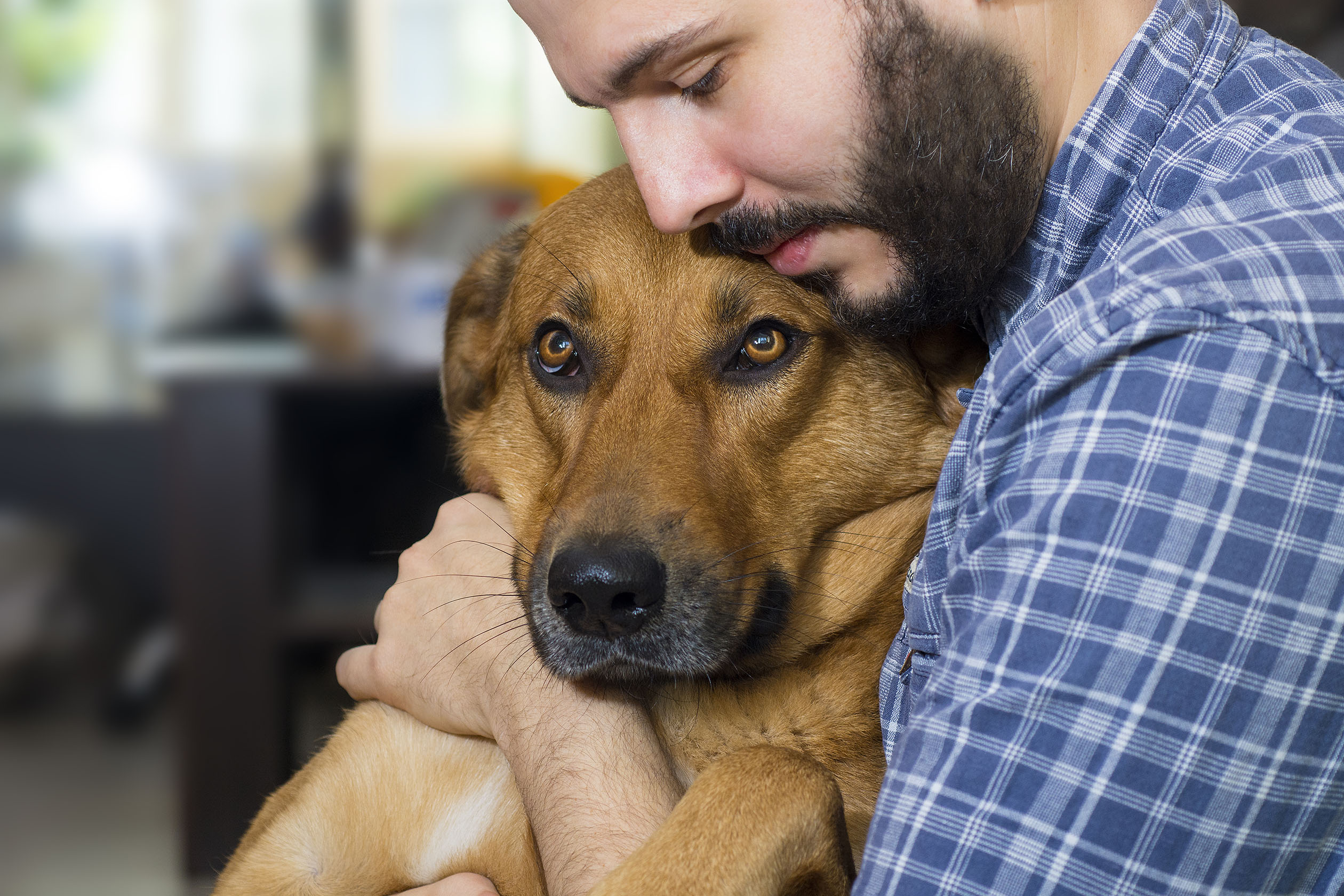
Learning that your senior dog has a heart condition can feel devastating. It forces you to contemplate the idea that your best friend won’t be around forever. But while the diagnosis of a heart murmur can be scary, there is no reason to jump to the worst-case scenario. Murmurs range in severity; while some are serious, others are less so. Before you start frantically Googling “old dog heart murmur life expectancy,” keep reading to learn more about the different types of heart murmurs, the prognosis, and how you can help your pup live a long and content life.

What is a heart murmur?
Like us, dogs’ hearts pump blood throughout their bodies, creating a steady beat that can be heard through a stethoscope. If there is a disturbance in the blood flow, it makes a noise distinct from a regular heartbeat called a murmur. There are a few different ways vets classify heart murmurs: type, grade, and configuration.
The type is based on when in the beating cycle the murmur takes place. The three types of murmur are systolic, diastolic, and continuous; knowing the type of murmur can help the vet determine its cause. The grade of the murmur lets the veterinarian know how loud it is. Murmurs are graded on a scale of one to six, with one being barely detectable with a stethoscope and six being the most severe and loudest. The doctor will also be able to uncover the heart murmur’s configuration. This classification describes the way murmurs sound and separates them into four categories: plateau, crescendo-decrescendo, decrescendo, and machinery. Your vet can explain which of these categories your dog’s murmur fits into so you can learn more about their condition.

How serious is a heart murmur in older dogs?
In general, murmurs can be difficult to predict because there are so many varieties and degrees of severity. As such, life expectancies differ based on a few factors, including the type of murmur and even the breed of dog. Some pups can have murmurs for years without ever developing heart disease. Others, though, may progress to congestive heart failure rapidly. Certain breeds are more likely to develop heart disease. These breeds include Chihuahuas, Boxers, Dobermans, and Cavalier King Charles spaniels. But even with congestive heart failure, pups can survive for years with medication and attentive care.
While they may sound scary, heart murmurs are not always dangerous. If your senior pup has a low-grade murmur and no accompanying symptoms, there is little cause to worry. Your vet will likely recommend monitoring your dog’s condition to make sure it doesn’t decline. Remember that heart murmurs typically occur in older dogs because of an underlying health condition. Many of these causes are treatable and may even resolve on their own. However, the outlook may be more guarded in more severe cases, especially with older dogs. Your veterinarian is the best person to talk to about your dog’s prognosis.

Monitoring and treatment can help your dog’s health outlook
Early diagnosis and treatment are vital to giving your pup the best chances of survival. It’s crucial to know that vets don’t treat the heart murmur itself; they focus on the symptoms and underlying issues associated with the murmur. The treatment plan and prognosis both depend on the cause of the murmur. Follow the vet’s recommendations and closely monitor your pet’s health to assess whether the murmur indicates a more serious heart condition. You should also research the symptoms of heart disease in dogs so you know more about what to watch for.
The vet may recommend that you monitor your pup’s breathing rate when he’s resting or sleeping, as well as his diet and activity levels. They can also advise you on which type of dog food is best for your dog’s condition. General guidelines are that dogs with heart disease must be on a low-sodium diet. You’ll also need to keep an eye on your pet’s potassium and phosphorus levels.
The veterinarian can also tell you how much exercise your dog should be getting. Too much strenuous activity can be hazardous for a pup with heart disease.
In addition to extending their life, one of the main goals of heart disease treatment is ensuring the dog retains a high quality of life post-diagnosis. By working with your dog’s vet, monitoring the dog’s condition, and managing their health properly, you can help ensure that they continue to live a happy life for as long as possible.

What are the grades of heart murmurs in dogs?
Heart murmurs are graded on a scale of one to six based on severity. Veterinarians use these grades to inform the next steps, if any, such as treatment. The six grades are:
- Grade 1. These heart murmurs in dogs are soft — the vet could barely hear the issue. Grade 1 heart murmurs are considered the least serious of the six.
- Grade 2. A vet can hear the murmur’s soft sound when using a stethoscope.
- Grade 3. These heart murmurs in dogs are more serious. The doctor will classify a Grade 3 heart murmur as “intermediate loudness.” The murmur radiates in multiple spots.
- Grade 4. These heart murmurs range from moderate to intense. The vet can hear the murmur on both sides of your pet’s chest.
- Grade 5. These murmurs are some of the most serious. They’re loud, and the vet doesn’t need to put much effort or pressure on the chest with a stethoscope to know that the dog has a murmur. In fact, the vet can feel the murmur by placing their hand on the pup’s chest.
- Grade 6. These are the most serious heart murmurs. Grade 6 heart murmurs are loud and detectable by touching the chest with a hand.

Don’t give up hope
When anyone brings up a heart murmur, you likely assume the worst. But the causes of murmurs in canines are so widespread, and the severity depends on so many factors that it’s challenging to know what to expect just from those two little words. There is still hope for your dog; many pups, even older ones, can live long, happy lives after their diagnosis. Your veterinarian can clarify your dog’s condition and what to expect in the coming months and years. With an early diagnosis, expert treatment, and regular monitoring, you can provide your dog with the best life possible, even with a heart murmur.
Editors' Recommendations
- Can dogs eat cashews? Only if you follow these rules
- How many dog breeds are there, really?
- Can dogs see in the dark? Your guide to your dog’s vision
- Why do dogs have wet noses? They’re actually really important
- Can dogs eat pineapple? What you need to know




